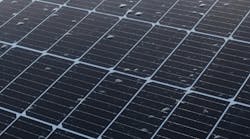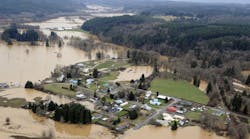Storm Water Pollution Study Shows Path to Cleaner Future
According to an article from the Yakima Herald-Republic, officials with the city of Yakima, Wash., and Yakima County recently received a grant from the state Department of Ecology to test porous road surfaces that can filter pollutants from the runoff, allowing cleaner water to seep into the ground and eventually to the Yakima River and other bodies of water.
Brian Cochrane, storm water supervisor in the county Public Services Department, told the Yakima Herald-Republic that their research has indicated that the porous surfaces significantly remove metals from the water compared to impervious surfaces—such as the black asphalt used on most roadways.
Using research acquired through the $226,400 grant, residents could see asphalt replaced with surfaces that let water slip through, bringing up thousands of tiny air bubbles in the process.
The city and county provided a $75,500 match for the grant, bringing the total amount for the project to $301,900.
On Wednesday, local officials held the sixth of 12 planned tests over the next year on three porous road surfaces in addition to testing runoff from an impervious surface filtered through a swale, a roadside ditch made of organic compost material instead of concrete
So far, tests indicate that the three porous surfaces—with layers of fine materials like sand underneath that pollutants cling to—release far cleaner water into the environment.
Cochrane told the paper that the study will benefit the state as well as the country, potentially. He said there are very few nationwide studies that look at water quality.
You can read the original Yakima Herald-Republic article here.
Source: Yakima Herald-Republic

